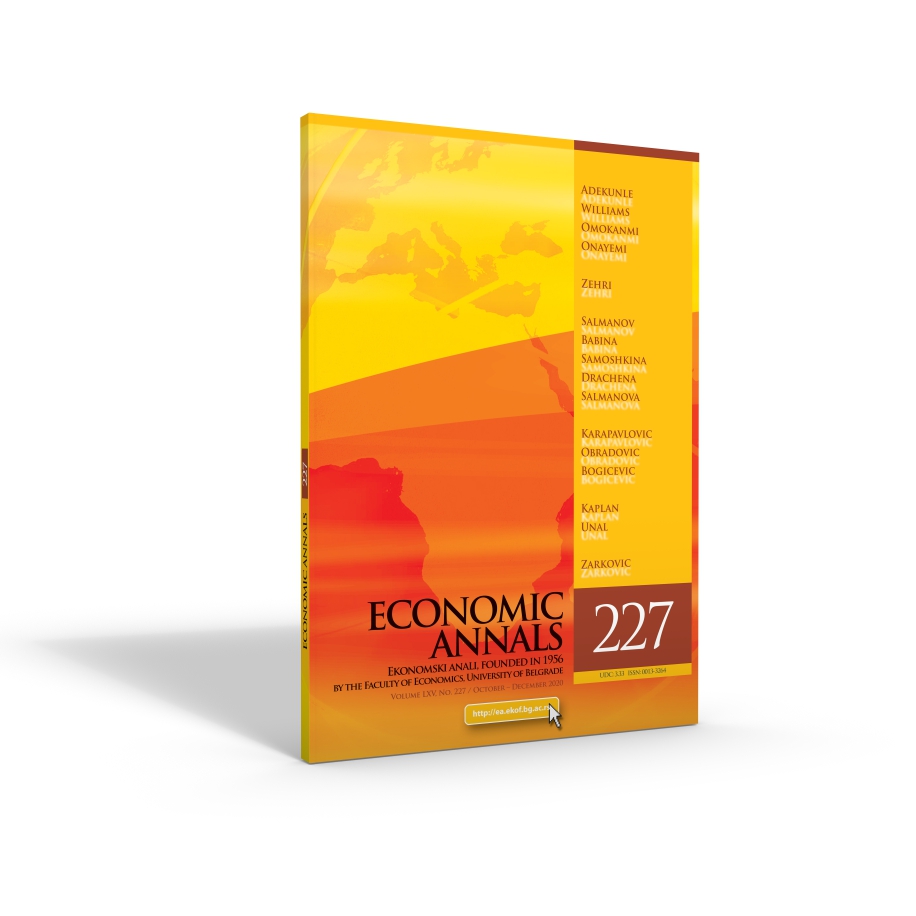THE DOMESTIC IMPACTS AND SPILLOVERS OF CAPITAL CONTROLS
##plugins.themes.bootstrap3.article.main##
##plugins.themes.bootstrap3.article.sidebar##
Chokri Zehri
Abstract
The effectiveness of capital controls has still not been established, and if they are indefinite they create distortions. This study uses quarterly data on capital controls in 25 Asian and Latin American countries from 2000 to 2019. We present further evidence on the internal and mul-tilateral impacts of capital controls using a Panel VAR model with variance decom-position and impulse-response function analysis. The results show that domestical-ly, capital controls, became more effective after the global financial crisis, with more monetary policy autonomy and exchange rate policy stability. Contrarily, these con-trols do not affect international reserve ac-cumulation, and a combination of policies, capital controls, and reserves is required to assist governments’ decisions. Interna-tionally, capital controls cause negative spillovers that require policy coordination between the countries setting controls and those consequently receiving massive in-flows.
##plugins.themes.bootstrap3.article.details##
Keywords
capital controls, monetary policy, exchange rate policy, reserves, spill-overs
JEL Classification
F32, F38, F41, F42
Issue
Section
Articles
How to Cite
Zehri, C. (2020). THE DOMESTIC IMPACTS AND SPILLOVERS OF CAPITAL CONTROLS. Economic Annals, 65(227), 31-66. https://doi.org/10.2298/EKA2027031Z
How to Cite
Zehri, C. (2020). THE DOMESTIC IMPACTS AND SPILLOVERS OF CAPITAL CONTROLS. Economic Annals, 65(227), 31-66. https://doi.org/10.2298/EKA2027031Z

